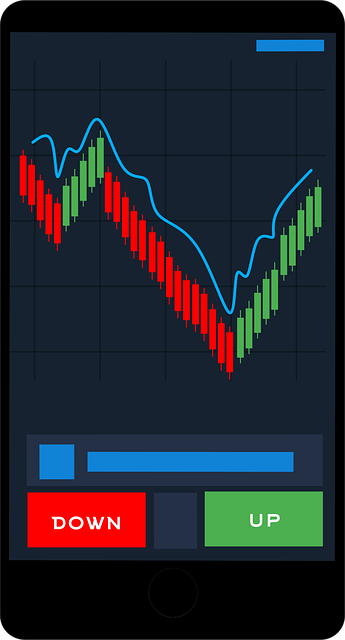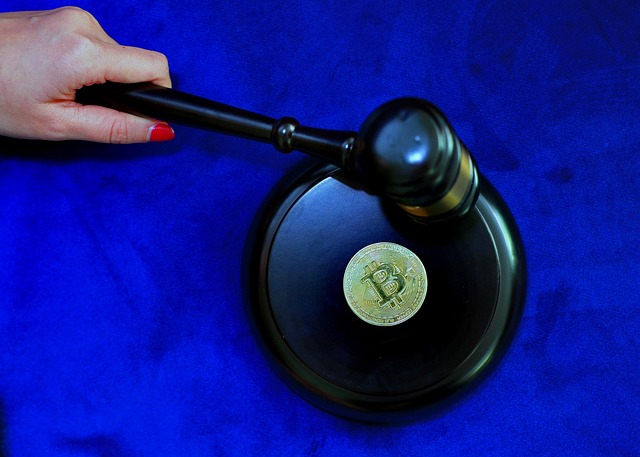Are Trading Platforms Regulated? An In-Depth Exploration
Author: Jameson Richman Expert
Published On: 2025-09-20
Prepared by Jameson Richman and our team of experts with over a decade of experience in cryptocurrency and digital asset analysis. Learn more about us.
When venturing into the fast-paced and increasingly complex world of online trading—covering markets such as stocks, forex, cryptocurrencies, derivatives, and emerging financial instruments—the question of regulation is of critical importance. Regulatory oversight of trading platforms is more than a legal formality; it is a cornerstone of market integrity, investor protection, and operational transparency. As the trading industry evolves rapidly—especially with innovations like decentralized exchanges (DEXs), blockchain-based platforms, tokenized assets, and algorithmic trading—understanding the intricacies of regulation becomes essential for traders, investors, and industry regulators alike. This comprehensive guide explores what regulation entails, its vital significance, practical steps for verification, industry challenges, and future trends shaping the landscape of online trading regulation.

Understanding Regulation in Online Trading Platforms
Regulation, in the context of online trading, refers to the framework of rules, oversight mechanisms, licensing requirements, and operational standards established by governmental authorities, financial regulatory bodies, or independent organizations. These frameworks are designed to create a secure, fair, and transparent trading environment, fostering confidence among participants. Prominent regulatory agencies include the Financial Conduct Authority (FCA) in the UK, the U.S. Securities and Exchange Commission (SEC), the Hong Kong Securities and Futures Commission (SFC), and various regional regulators across Europe, Australia, and Asia. These authorities set licensing standards, operational requirements, capital adequacy benchmarks, AML (anti-money laundering) policies, KYC (know-your-customer) protocols, and dispute resolution processes that serve to protect investor interests and promote market integrity.
In the case of cryptocurrencies and blockchain-based platforms, regulation becomes significantly more complex due to the borderless, pseudonymous, and decentralized nature of blockchain technology. Nevertheless, jurisdictions worldwide are working to develop or refine regulations specific to digital assets to foster safer trading environments, combat illicit activities, and facilitate mainstream adoption. For example, the European Union’s proposed Markets in Crypto-assets (MiCA) regulation aims to establish a comprehensive legal framework for digital assets, while U.S. legislative bodies are deliberating measures to tighten oversight of crypto exchanges and ICOs (Initial Coin Offerings). Such regulatory developments are critical in balancing innovation with investor safety.
Why Regulation Matters for Traders
The significance of regulation extends far beyond compliance; it is fundamental to fostering trust, security, and the integrity of financial markets. Here are key reasons why regulation is indispensable for traders and investors:
- Protection of Funds: Regulated platforms are mandated to keep client funds segregated from operational capital, typically in escrow accounts or designated client accounts. This segregation reduces the risk of misappropriation and enhances the likelihood of recovering funds in cases of insolvency or platform bankruptcy.
- Transparency and Fair Practices: Regulatory standards require platforms to disclose comprehensive information regarding fees, trading policies, margin rules, risk disclosures, and operational procedures. Such transparency enables traders to make informed decisions and discourages deceptive, manipulative, or fraudulent practices.
- Dispute Resolution and Legal Recourse: Regulatory bodies often provide formal mechanisms for resolving disputes, offering traders legal avenues in case of misconduct, withdrawal issues, or malpractice. These channels add an essential layer of accountability and trustworthiness.
- Market Integrity and Fraud Prevention: Compliance with regulations helps prevent manipulative schemes such as pump-and-dump campaigns, price manipulation, wash trading, front-running, and spoofing. Maintaining fair trading conditions protects the broader market and individual traders alike.
- Legal Protections and Confidence Building: Trading on regulated platforms offers legal protections under applicable laws. This assurance is especially vital in volatile markets like forex and cryptocurrencies. Such protections encourage responsible trading, foster investor confidence, and promote long-term participation.
How to Identify if a Trading Platform is Regulated
Verifying a platform’s regulatory status is crucial to avoid scams and operate within legal boundaries. Here are detailed methods to confirm if a trading platform is properly regulated:
- Check the Website and Official Disclosures: Reputable platforms typically display their licensing and regulatory affiliations prominently, often in the footer or dedicated “Legal” pages. Look for license numbers, registration identifiers, and the names of the overseeing authorities.
- Verify with Regulatory Bodies: Cross-reference claimed licenses through official regulator websites. For instance, the FCA Register allows verification of FCA-regulated firms in the UK. Similar databases exist for other jurisdictions, such as the SEC EDGAR database or ASIC’s register in Australia.
- Assess Transparency and Documentation: Trustworthy platforms openly share their compliance policies, privacy statements, AML/KYC procedures, and dispute resolution mechanisms. Transparency indicates a commitment to regulatory standards and operational integrity.
- Look for Industry Certifications and Memberships: Certifications such as ISO security standards, audits by independent firms, and memberships in recognized industry associations (e.g., IOSCO, IFX) lend credibility. These often involve rigorous compliance reviews and ongoing oversight.
- Research User Feedback and Independent Reviews: Consult trusted review sites, regulatory watchdog reports, and trader forums. Consistent complaints related to withdrawal issues, suspicious charges, or lack of transparency are red flags. Conversely, positive reviews emphasizing security, transparency, and prompt support are indicators of legitimacy.
Given the proliferation of platforms claiming regulation, due diligence and skepticism are vital. Some entities may falsely claim regulation or operate under questionable licenses, making independent verification imperative before depositing funds.

Examples of Regulated Trading Platforms and How They Ensure Safety
Leading trading platforms exemplify high standards of regulatory compliance and operational security. These serve as benchmarks for traders seeking safe environments:
- Binance: With licenses or compliance arrangements in jurisdictions like Malta, France, and Singapore, Binance adheres to regional AML/KYC protocols, employs state-of-the-art security measures—including multi-layer encryption and cold storage—and maintains transparent reporting practices.
- MEXC: Compliant with licensing standards in regions like Singapore, MEXC emphasizes transparency, strict client fund segregation, AML/KYC procedures, and regular security audits to ensure user safety.
- Bitget: Known for regulatory compliance in multiple jurisdictions, Bitget invests heavily in security protocols, including multi-signature wallets, cold storage, and routine third-party security audits.
- Bybit: Maintaining compliance with UK standards and adhering to international AML/KYC policies, Bybit fosters a trustworthy environment through transparent operations and robust security measures.
These platforms incorporate multiple layers of security—such as two-factor authentication (2FA), biometric verification, cold storage, regular security audits, and dispute resolution services—creating a safer trading environment for users.
Legal and Regulatory Challenges in the Trading Industry
Despite the clear advantages, the trading industry faces numerous regulatory challenges that hinder the creation of a fully secure global ecosystem:
- Jurisdictional Discrepancies and Fragmentation:
- The global nature of online trading results in a patchwork of regulatory standards. Some jurisdictions have minimal oversight or overly lenient rules, creating “regulatory havens” where unscrupulous operators can flourish, often at the expense of traders’ safety. This fragmentation complicates enforcement and cross-border cooperation.
- Crypto and Emerging Markets:
- Many countries lack comprehensive crypto-specific regulations, leading to an influx of unregistered or lightly regulated crypto exchanges. This regulatory gap exposes traders to hacking, fraud, market manipulation, and liquidity issues. The absence of clear standards hampers consumer protections and hampers mainstream acceptance.
- Regulatory Arbitrage:
- Platforms may domicile in jurisdictions with lax or permissive regulations to reduce compliance costs. Although this may benefit operators, it often compromises client security and market integrity. Traders need to be aware of the legal environment of the platform’s domicile, as jurisdictional differences impact protections.
- Technological and Enforcement Complexity:
- The borderless, decentralized nature of blockchain and cryptocurrencies complicates enforcement efforts. Rapid technological innovations—such as smart contracts, tokenization, and privacy coins—sometimes outpace existing regulations, creating enforcement gaps and regulatory uncertainties.
Overcoming these challenges requires increased international cooperation, development of adaptive regulatory frameworks, and enhanced technological tools for enforcement—aimed at reducing fraud, protecting investors, and ensuring fair markets.
The Role of International Authorities and Future Trends
International organizations like the IOSCO (International Organization of Securities Commissions) are working toward harmonizing standards, facilitating cross-border cooperation, and promoting best practices. Though full convergence of regulations remains a work in progress, several emerging trends promise to shape the future of trading regulation:
- Enhanced Regulatory Frameworks: Countries are enacting comprehensive laws specific to digital assets—covering licensing, disclosures, consumer protections, and reporting standards—to reduce regulatory arbitrage and foster safer trading environments.
- Technological Innovation in Regulation: Regulators are increasingly deploying AI, blockchain analytics, real-time transaction monitoring, and machine learning tools to detect suspicious activity, enforce compliance, and streamline reporting, thus creating more proactive oversight mechanisms.
- Cross-Border Data Sharing and Enforcement: International cooperation is expanding through treaties, joint task forces, and data-sharing platforms, which help track illicit activities across jurisdictions, shut down unregulated platforms, and pursue cross-border scams.
- Trader Education and Awareness: Increasing efforts by regulators and industry bodies aim to educate traders about the risks associated with unregulated platforms, the importance of licensing, and how to identify credible brokers—fostering responsible trading habits and reducing exposure to scams.
Staying informed about evolving regulatory standards and enforcement strategies is crucial for traders seeking to navigate the complex legal landscape safely, mitigate risks, and ensure compliance with applicable laws.

Conclusion: Are Trading Platforms Truly Regulated?
The landscape of online trading regulation remains complex, fragmented, and in a constant state of evolution. While many established platforms operate under stringent regulatory oversight, the borderless nature of cryptocurrencies and blockchain technology presents ongoing challenges for regulators worldwide. Traders must conduct thorough due diligence—verifying licenses, cross-checking claims, and favoring platforms with transparent operations and robust security protocols—to safeguard their investments.
Regulation plays a vital role in protecting traders from fraud, market manipulation, insolvency, and other risks inherent in highly volatile markets like forex and cryptocurrencies. Choosing regulated platforms is not just advisable but essential for responsible trading. As regulatory standards continue to develop, and enforcement mechanisms strengthen through international cooperation and technological innovations, a safer, more transparent trading environment is emerging—supporting sustainable growth, fostering investor confidence, and promoting stability in global financial markets.